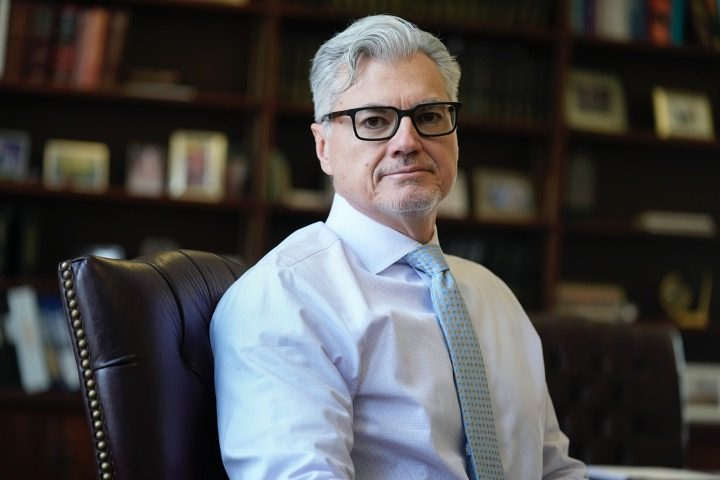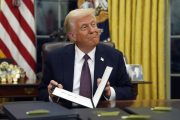
On Tuesday, Representative Elise Stefanik (R-N.Y.) filed misconduct charges against the judge presiding over former President Donald Trump’s “hush money” trial in New York. Among other things, Stefanik is suggesting that Judge Juan Merchan’s selection to oversee the trial wasn’t random, as it is meant to be.
Stefanik is suggesting that the New York State Unified Court System and its inspector general investigate the circumstances surrounding Merchan’s selection to preside over the hush money trial, another trial involving the Trump organization, and an upcoming trial against Steve Bannon, an ally of Trump.
“I request that both the Commission and the Inspector General investigate this anomaly to determine whether the required random selection process was in fact followed in the assignment of these criminal cases to Acting Justice Merchan,” Stefanik posted on X.
“Section 200.11(c) of the Uniform Rules for New York State Trial Courts requires that criminal actions be assigned to a judge ‘pursuant to a method of random selection authorized by the Chief Administrator,'” Stefanik noted. “If justices were indeed being randomly assigned in the Criminal Term, the probability of two specific criminal cases being assigned to the same justice is quite low, and the probability of three specific criminal cases being assigned to the same justice is infinitesimally small. And yet, we see Acting Justice Merchan on all three cases.”
Further, Merchan is a known Democratic donor, and his daughter, Loren, is fundraising for Democrats through her company Authentic Campaigns, whose clients include Adam Schiff, the California Democrat who served as the lead prosecutor in Trump’s first impeachment trial. When asked to recuse himself from the “hush money” trial because of a conflict of interest, Merchan refused.
“One cannot help but suspect that the ‘random selection’ at work in the assignment of Acting Justice Merchan, a Democrat Party donor, to these cases involving prominent Republicans, is in fact not random at all,” Stefanik suggested. “The simple answer to why Acting Justice Merchan has been assigned to these cases would seem to be that whoever made the assignment intentionally selected … Merchan to handle them to increase the chance that Donald Trump, the Trump Organization, and Steven Bannon would ultimately be convicted.”
In her complaint, Stefanik reminded the court system of Merchan’s past political leanings and implied he was already guilty of breaking the code of judicial conduct.
“This is the same Acting Justice Merchan who, in violation of New York State Code of Judicial Conduct 100.5(h), donated to President Biden’s 2020 campaign, along with the Progressive Turnout Project and its ‘Stop Republicans’ subsidiary,” Stefanik recounted. “It’s also the same Acting Justice whose daughter is a political consultant working for prominent Democrats, whose firm stands to profit greatly if Donald Trump is convicted.”
Merchan donated $15 to Joe Biden in 2020. Additionally, he donated $10 to left-wing groups Progressive Turnout Project and Stop Republicans. The judge was cleared by the New York State Commission on Judicial Conduct last July, but with a “caution” that they could consider the charges again.
The New York State Office of Court Administration (OCA) argues that Merchan’s selection in all of the cases Stefanik named was by the book.
“As we’ve said repeatedly, including in April 2023, Judge Merchan was assigned to supervise the special grand juries that investigated the Trump Organization and Allen Weisselberg as well as Donald Trump,” said OCA spokesperson Al Baker. “He was, in turn, assigned the indictments that arose from those investigations, which is common practice since the judge supervising the grand jury investigation already has some familiarity with these often-complex cases and can manage them more efficiently.”
Merchan appears to have been acting in an odd manner befitting a judge. He has charged Trump with contempt on numerous occasions and lambasted Trump attorneys. He also issued a controversial gag order against Trump, not allowing the former president to comment publicly on the case.


